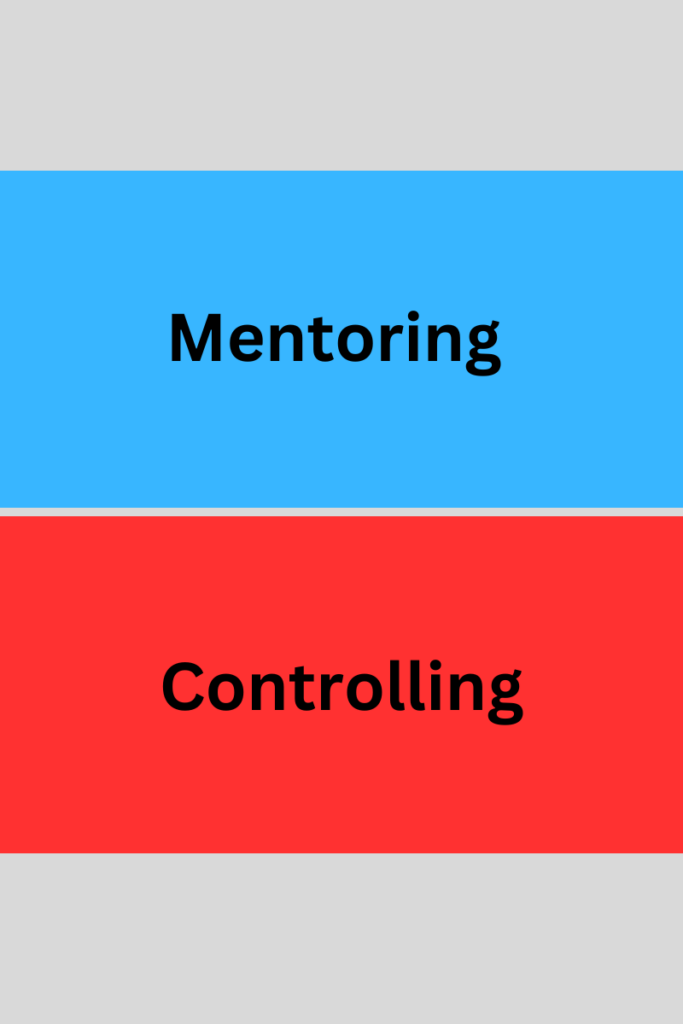The Cost Of Mentoring In The Fire Service

Mentoring will always cost you something. It’s impossible to truly mentor someone without it costing you something. Whether you’re mentoring a firefighter, training a paramedic, or raising up the next generation of officers, it will always cost you something.
What's it take to be a Mentor
Mentoring is not a passive activity. It is very much involved and requires full attention to establish a positive mentorship. Many people underestimate what it takes to mentor someone else.
Often when you’re mentoring someone you have to give the controls over to them with the hope that they will not make a critical mistake or make so many mistakes where they just kind of creep over the boundaries. If it will negatively affect the outcome of a patient, a call, or even your career you have to know to pull in the reigns.
There will be disappointments. You will find sometimes you need to ask this most critical question of the person you’re mentoring: Are they teachable?
Is your mentee teachable?
If the person you’re trying to mentor does not have a teachable heart then you need to cut your losses early.
What do I mean? I learned that when discussing the progression of a person you’re mentoring with a superior or a peer, you may have to come to this realization: It’s not worth it if you care more about their progress than they do If that’s the case, then it’s time to move on.
Setting boundaries during mentoring
There will be ups and downs as you build a relationship with that person. They will be growing under the boundaries you establish for them.
Setting boundaries takes a great deal of time. Make sure to budget your time accordingly both on and off duty.
I’m not trying to discourage anybody. I believe if you have practical expectations and boundaries from the beginning it will be more successful.
Remember, the person you’re mentoring, sooner or later, will make a mistake. Hopefully it will not be a critical failure. However, the best place for that person to make a mistake is when they are with you.

Establish mentoring non-negotiables

One of the first things you need to do is establish some healthy boundaries and expectations. I was taught in the past those things could be called non-negotiables. Those are things that you will not compromise on in your personal or professional life.
A good example of a non-negotiable would be anything less than the truth is unacceptable.
Misunderstandings caused during mentoring
Sometimes mentoring someone you’re trying to positively influence and develop may create misunderstandings. It can leave you up at night wondering if you’re doing the right thing. Wondering if you are doing it the right way. These feelings are few and far between, so don’t be discouraged.
I remember many times when I was investing in someone, and that person took what I gave them and tried to use it against me. When trying to lead others to their greatest potential, immaturity often causes them to believe that your vulnerability is a sign of weakness.
Mentees may become angry with you, and may even disrespect you. This typically lasts for a short season. Eventually their heart and mind comes to terms with reality and your intentions to help them.
You should explain when you’re being vulnerable you are actively helping them learn from your mistakes. You are sharing with them your many lessons from the past. Mentors share instances when they didn’t always shine.

Controlling false expectations of Mentees
Mentees often have unrealistic expectations concerning the job and their performance. Manage their expectations appropriately to help in their overall success.
For example, when people graduate from paramedic class, they have this false belief that they can save the world regardless of the circumstances. When they show up on a cardiac arrest of a child and that child does not make it, their feelings and concepts of being a paramedic are crushed.
As we work with mentees, we help them understand our job is to do the best we can with what we’re given. The rest is up to a higher power. By mentoring with that concept in mind there’s two things that happen:
- They can no longer take responsibility over things like life and death as long as they do their best.
- They can’t take all the credit when the outcome is good, like when they work that cardiac arrest and that person comes back to life.
Mentoring these concepts to emergency workers can take days, weeks, and even months before they come to terms with that. Trying to control someone will never bring them to that conclusion. Instead, giving them explanation and space allows them the time to process. They reflect on what they’ve learned in school and what they’ve experienced in real life.
Controlling vs. Mentoring
There’s a big difference between controlling and mentoring someone. Controlling can bring very quick results. Unfortunately those results will not last. Leading someone in a mentoring relationship. You have to be patient with them as they take the time to follow what you’re trying to teach them.
Mentoring could take anywhere from a few days to an extended period. As your patient with them and allowing them time, they come to their own conclusion of what you’re trying to teach them about.

How do you Mentor imperfect people?
How can you do that? You follow imperfect leadership by trusting in a perfect God. You mentor imperfect people by trusting in the same way.
Mentoring imperfect people begins with the foundation that you yourself had your own journey of making mistakes and sometimes learning the hard way.
I’ll never forget when I was a brand new firefighter working in a small town pulling up on a brush fire that was roaring and heading towards the house. I got on the radio and gave the worst size up anyone could ever give and sounded like a soprano as I was yelling into the microphone. The chief told me on the radio to calm down and give the report again. I was never so embarrassed in my life.
That and many other examples I could give of when I performed in a substandard way. I go back to that principle that we learn humility from those moments in life when we fail. That failure leaves us with a desire to learn and become better than the person we are today.
Humility keeps us grounded when dealing with other people’s weaknesses and subsequent mistakes.
Teaching falling forward

Mental Health in the Fire Service: Are We Failing? We teach people to fall forward by speaking the truth into their lives. We confront the failure or wrong thinking. This allows them the opportunity to recover and do the right thing the next time.
Many people deep down inside are fragile, especially in the early years of development in emergency services. While many people portray a very thick exterior when it comes to the job, I have found most are fragile on the interior.
I do not believe we should hide the truth from the people we’re trying to lead. How we speak it is the key thing. It’s been said that our communications with others is 10% of what we say and 90% of how we say it. Our words can either give life or crush someone.
The older I got and more experienced I became, the more I realized the truth of how someone is doing on the job or in life must be spoken. But that truth must be spoken in a way that creates trust. They should know you have their best interest at heart and not your own selfish desires to protect your reputation.
Push through your own self-doubt
Being a mentor means you will be challenged by your own self-doubt.
There were times when I had to defend my staff to those in authority above me. Authority who did not understand the job. As a young leader there were times when I was concerned about how I was looked at as a leader. Even towards the latter years of my career I sometimes felt that same emotion.
However, I learned that after a short period of time I would put aside my selfishness to defend that person put under my care. Your own doubts as a mentor may surface and disrupt your intentions.
It’s really not complicated, do unto others as you would like them to do unto you. Treat others the way you would want to be treated. Take time to look back at others who have invested in you and remember those who’ve gone before you.
Also remember that character is not necessarily built in, but through trials and tribulations it’s revealed. How you handle that revelation for yourself and for others determines the person you will be in this lifetime.
The rewards of mentoring
You can’t list all the costs of mentorship without discussing the rewards or else no one would ever do it.
There are rewards to be reaped from being a mentor for sure. As I’m 63 years old and looking back on my life now with some frequency I will tell you without a shadow of a doubt that some of my greatest moments in life is when I had the opportunity to mentor or influence someone successfully.
Society teaches today that success is based on what you do and what you accomplish. I believe success is measured by the people who you’ve influenced and how successful they are.
Takeaways
You are probably asking is it worth the time and energy, ups and downs, twists and turns, of being a mentor. And I can say after 42 years on the job and many years as a parent, the answer is an absolute yes.
If you are honest with yourself and your mentee, you’ll find in the long term it’s a great legacy to leave behind. The positive outcomes always outweigh the negative.
You must allow them to be themselves. Learn to give people the benefit of the doubt and know that sometimes you will be used by those people you’re trying to mentor.
Overcome your doubts by trusting in something greater than yourself. The result will ultimately work out for the greater good.
Resources/Recommendations
- The movie Radio is a great lesson in how to mentor someone in life and the cost of that relationship. That movie also reveals some weaknesses in the Coach’s life and those surrounding the main character “Radio”.
- Couch Courses Mentorship Series: Mentoring with Humility
- Couch Courses Officer Classes





